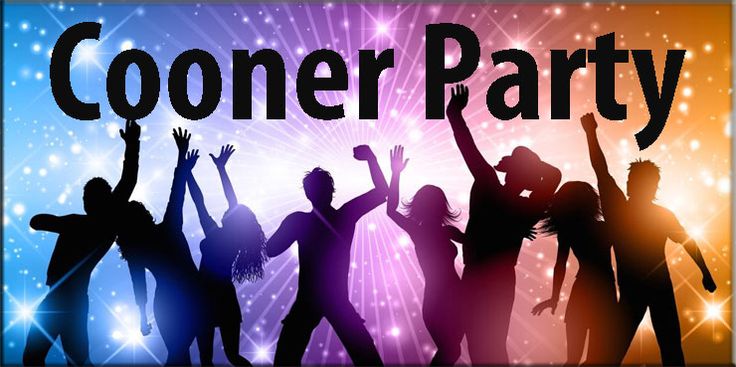In the age of digital communities, online memes, and fast-spreading internet slang, terms like “Coomer” have emerged and evolved in surprising ways. One phrase that has piqued curiosity—and sometimes concern—is the Coomer Party. But what exactly is a Coomer Party? Is it a social gathering? A meme? A critique of modern internet habits? Or something else entirely?
This article will dive deep into the meaning, origin, context, and cultural relevance of the Coomer Party, exploring how it fits into broader discussions on internet culture, masculinity, addiction, and digital well-being.
What is a Coomer?
Before understanding the term Coomer Party, it’s important to define Coomer itself.
Coomer is a slang term that originated from internet meme culture. It generally refers to a person—usually a man—who is excessively addicted to pornography and masturbation. The term paints a picture of a disheveled, socially awkward individual, overly driven by compulsive behavior.
The Coomer meme caricature typically includes:
- Hollow or bloodshot eyes
- Unkempt hair or facial hair
- Stressed or anxious demeanor
- Isolation or social withdrawal
- A computer desk surrounded by tissues, soda cans, or junk food
The term is often used both humorously and critically, depending on the context.
Origins of the Coomer Meme
The Coomer meme emerged on imageboards like 4chan and Reddit around 2018–2019. It was a variation of the “Wojak” character, a popular template for expressing human emotions in meme form.
The term was initially intended to mock those perceived as being addicted to adult content and the instant gratification it brings, often juxtaposed with “NoFap” or self-improvement communities. Over time, Coomer became part of a larger narrative critiquing the pitfalls of internet addiction, pornography use, and the decline in real-life social engagement among young men.
What is a Coomer Party?
The phrase “Coomer Party” can be interpreted in a few different ways, depending on context. It is not a widely standardized term but generally implies:
- An Online Gathering or Subculture
A Coomer Party might refer to a digital “meeting of the minds” where like-minded individuals (ironically or seriously) share memes, videos, and jokes centered around Coomer culture. These can be found in forums, Discord servers, or social media threads. - A Satirical or Parodic Concept
Sometimes used to mock or parody online communities, a Coomer Party could suggest an exaggerated gathering of individuals who openly embrace the Coomer lifestyle. It’s often used sarcastically, poking fun at compulsive behaviors or lack of self-control in a meme format. - A Real or Imagined Event
In rare instances, people have used Coomer Party to describe themed parties where internet meme culture is celebrated. This may involve cosplay, internet jokes, or even commentary on addiction in a light-hearted, yet thoughtful way. - Political Satire
There are memes that refer to the Coomer Party as a fictional political group, characterized by indulgence, self-destruction, and lack of ambition. These memes often position the “Coomer Party” against more disciplined or idealized factions like the “Chad Party” or “NoFap Army.”
Why Do People Join or Joke About a Coomer Party?
1. Internet Solidarity and Humor
One of the biggest draws of the Coomer Party is shared humor. People bond over self-deprecating jokes and exaggerations of their habits. For many, it’s a coping mechanism.
2. Self-Awareness and Irony
Users often refer to themselves as Coomers ironically, fully aware of the negative connotation. The term becomes a tongue-in-cheek way to criticize their own internet usage or lifestyle.
3. Critique of Modern Culture
The concept of a Coomer Party can also be used to mock societal norms around overstimulation, lack of discipline, and the normalization of instant gratification.
4. Safe Space for Discussion
Oddly enough, behind the satire, some people use these communities to seriously discuss issues like pornography addiction, mental health, and the struggles of modern masculinity.
Criticism of the Coomer Party Culture

Despite its humorous elements, the Coomer Party culture has been criticized for several reasons:
1. Encouraging Addictive Behavior
Normalizing or joking about compulsive behavior can minimize its serious impact. Pornography addiction is a real issue, and memes may desensitize users to the dangers.
2. Misogyny and Objectification
Coomer culture has been criticized for being male-dominated and sometimes objectifying toward women. Some memes portray women solely as sex objects, reinforcing toxic stereotypes.
3. Reinforcing Stereotypes
By exaggerating negative traits like laziness, depression, or addiction, Coomer Party memes can reinforce unhelpful stereotypes, potentially shaming individuals who are already struggling.
4. Lack of Constructive Solutions
While humor has value, critics argue that Coomer Party content rarely offers real advice or encouragement for self-improvement.
Coomer Party vs. NoFap Movement
The NoFap Movement is a community focused on abstaining from masturbation and pornography to regain control over one’s life. In many ways, it is the antithesis of the Coomer Party.
Interestingly, many users participate in both communities at different times in their lives, using humor when they feel low and discipline when seeking change.
The Psychological Impact of Coomer Party Ideology
Though memes and jokes can be harmless, immersion in Coomer culture may have psychological effects:
- Reduced Self-Esteem: Constantly labeling oneself as a “Coomer” may reinforce negative self-image.
- Desensitization: Regular exposure to explicit content can diminish real-life experiences and intimacy.
- Social Isolation: Over-engagement in online fantasies can create barriers to real-world relationships.
- Delayed Life Goals: Instant gratification may become preferable to pursuing long-term ambitions.
Can There Be a Positive Side to the Coomer Party?
Strangely enough, yes—if approached consciously. The Coomer Party can be:
- A mirror to reflect on personal habits.
- A humorous way to deal with guilt or stress.
- A launchpad for deeper conversations about addiction and modern loneliness.
Like any internet trend, its impact depends on how it’s used.
Coomer Party in Pop Culture and Media
Some influencers, YouTubers, and content creators have referenced Coomer Party themes in their content. Discussions around dopamine detox, digital discipline, and internet addiction often touch on these ideas, indirectly referencing Coomer behavior. Some Twitch streams and podcasts use the term to jokingly describe their fan base or the late-night energy of certain episodes.
How to Escape the Coomer Party Mindset
If you or someone you know feels “stuck” in the Coomer lifestyle, here are some practical tips:
- Dopamine Detox – Temporarily avoid instant gratification activities to reset your brain.
- Join Self-Improvement Forums – Reddit, YouTube, and Discord have supportive communities.
- Set Realistic Goals – Start small: limit screen time, improve sleep, eat healthy.
- Find Purpose Offline – Take up hobbies, go outside, interact with real people.
- Consider Therapy – Addiction, depression, and anxiety are treatable with professional help.
Conclusion
The Coomer Party is more than just a joke—it’s a lens into a complicated web of internet behavior, humor, coping, and cultural critique. Whether used as satire, self-deprecation, or a cry for help, it reflects real struggles in today’s hyper-digital world.
Like many internet trends, its value or harm depends on how it’s engaged with. Awareness, humor, and balance are key. It’s okay to laugh—but it’s even better to grow.
FAQs
Q1: Is the Coomer Party real?
No, the Coomer Party is not a real political or organized event. It’s a term used in internet culture, often sarcastically, to describe indulgent or compulsive online behaviors.
Q2: Is it bad to be a Coomer?
The term “Coomer” often has negative connotations related to addiction and lack of control. If behaviors are affecting your health or relationships, it’s worth reflecting and possibly seeking help.
Q3: Can Coomer memes be harmful?
Yes, while some find them funny or relatable, others may find that the memes reinforce unhealthy behaviors or mental states.
Q4: What’s the opposite of the Coomer Party?
The “NoFap” movement or self-improvement communities are often seen as the ideological opposite of the Coomer lifestyle.
Q5: How do I stop being part of the Coomer Party mindset?
Start with small changes—reduce screen time, set personal goals, find hobbies, and consider joining support communities focused on growth and well-being.
Also read: DD Osama Age



Pingback: Exploring the Rising Wave of Jalbiteblog Food Trend: A Culinary Revolution in 2025 - NYWeeklys